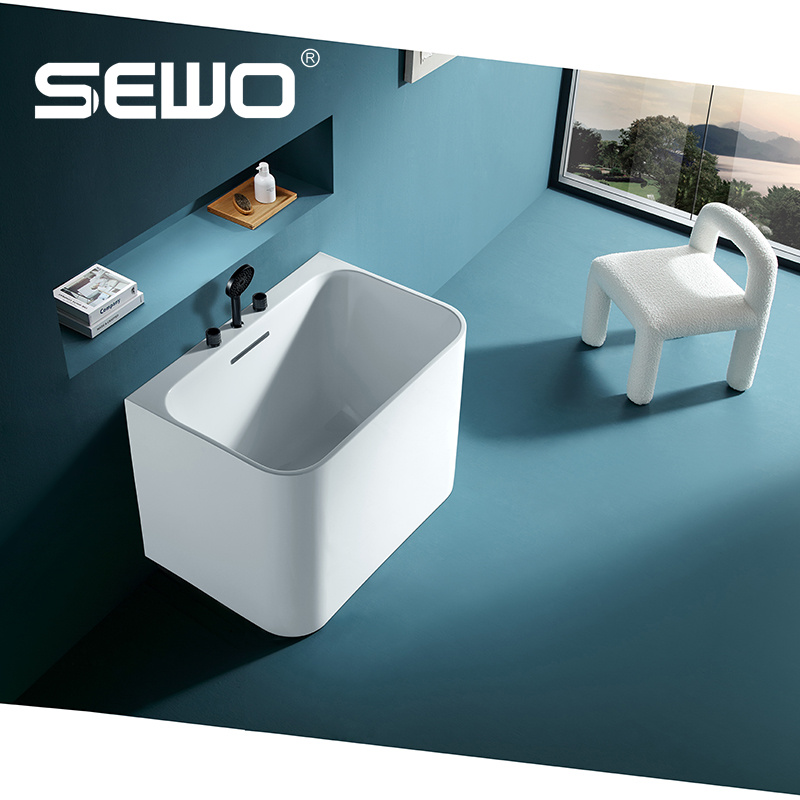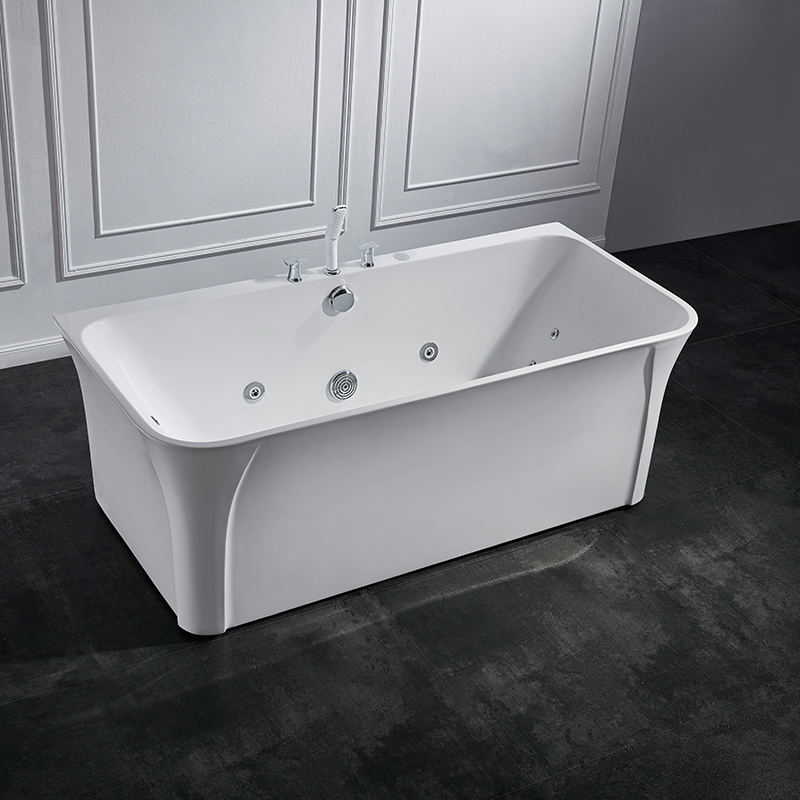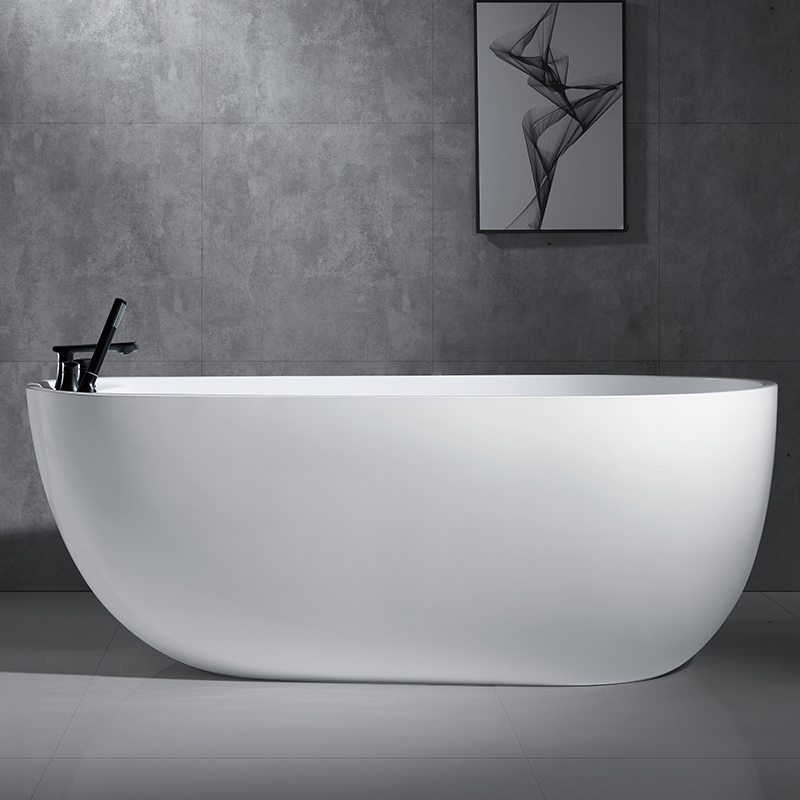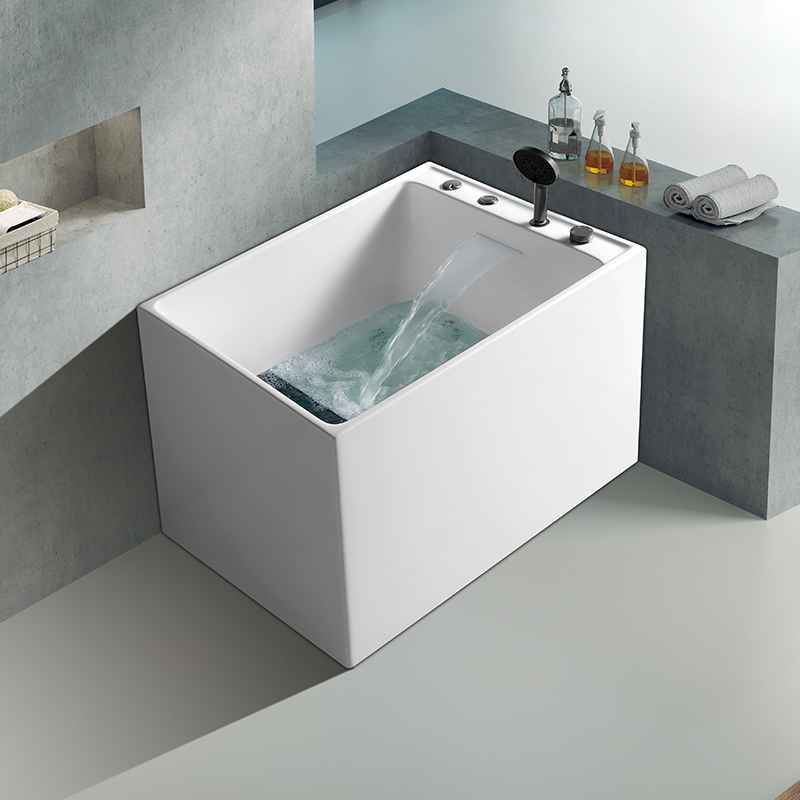How about soaking in a bathtub?
Analysis of the Benefits of Soaking in a bathtub,Promoting physical and mental relaxation and stress relief: Warm water can soothe muscle tension, reduce anxiety, and help the body recover from daily life
Recovery under pressure is especially suitable for busy people to relax both physically and mentally.

Improving blood circulation and metabolism: Hot water can dilate blood vessels, accelerate blood circulation, enhance the efficiency of metabolism, and help The elimination of toxins and the enhancement of the skin's breathing capacity are beneficial to skin health.
Relieve muscle and joint pain: The buoyancy of water reduces the burden on the body. Combined with the water flow design of the massage bathtub, it can effectively relax the muscles
Meat can relieve soreness and is also beneficial for arthritis patients to some extent.Improving sleep quality: After taking a bath, the body relaxes and the excitability of the cerebral cortex decreases, which helps improve sleep, especially before going to bed It takes 1 to 2 hours for 25.
The potential risks and precautions of soaking in a bathtub .Health risk.Cardiovascular burden: Water that is too hot (above 40℃) or for too long (over 30 minutes) may cause fluctuations in blood pressure and hyperglycemia .Patients with hypertension and heart disease need to be cautious.Skin issue: Prolonged soaking may damage the skin's oil layer, leading to dryness. It is recommended to apply moisturizer promptly after taking a bath.
Health and environmental issues
Infection risk: Incomplete cleaning of the bathtub can easily breed bacteria. Make sure the bathtub is disinfected before use and avoid sharing the bathtub.Water waste: The single water consumption of a standard bathtub is relatively high. It is recommended to control the water level and avoid frequent bathing.Special group contraindications: Cancer patients, pregnant women, infants and young children, and those with weak constitutions should avoid taking baths. It is recommended to take warm water showers and shorten the duration Time.
A scientific bathing advice plan
1. Control water temperature and duration: The water temperature is preferably 37-39℃, and the soaking time should be 20-30 minutes. It is recommended that the water temperature not exceed 40 ° C
After 10 minutes 4.
2. Strengthen hygiene management: Rinse the bathtub with clean water before use and avoid using irritating cleaning agents. Take a shower to remove before taking a bath Body surface dirt 2.
3. Replenish water and nutrients: It is easy to sweat when taking a bath. It is recommended to drink warm water in advance and avoid taking a bath on an empty stomach or immediately after a big meal.
To prevent hypoglycemia 4.
4. Material selection affects experience: Acrylic bathtubs have good heat preservation and are lightweight, cast iron bathtubs are durable but more expensive, and wooden bathtubs
The cylinder needs regular maintenance. You can choose 3 according to your needs.
Summary
Soaking in a bathtub is a "double-edged sword". Reasonable use can bring relaxation and health benefits, but safety, hygiene and the environment should be taken into consideration
Problem. Only by adjusting the way according to one's own health condition can one enjoy comfort while reducing risks.
The advantages and disadvantages of taking a bath at night:
aking a bath at night can have benefits such as cleaning the skin, warming the meridians and promoting blood circulation, and improving sleep. Taking a moderate bath in the evening is generally not harmful to the body. However, if the bath lasts too long or the water is too hot, it may cause burns to the skin, affect the transformation and transportation of the spleen and stomach, and lead to brain hypoxia, etc. The specific situations are as follows:
Benefits of taking a bath at Night
Clean the skin
Taking a bath can clean the skin, accelerate skin metabolism, remove skin oil, dirt and dead keratin, and improve the symptoms of oily and itchy skin.
2. Warm the meridians and unblock the collaterals
Taking a bath at night also has the effect of warming the meridians and promoting the circulation of qi and blood, dispelling cold, unblocking the meridians, and alleviating symptoms such as cold limbs and cold pain in the joints.
3. Improve sleep
Soaking feet in the evening can also relax the mind, soothe the body and mind, relieve fatigue, help with sleep, improve sleep quality, and alleviate symptoms such as insomnia, frequent dreams, and restlessness.
Disadvantages of taking a bath at Night
1. Burn the skin
If the water temperature is too high when taking a bath, it may burn the skin, causing symptoms such as redness, swelling and pain, which can increase the risk of infection.
2. Affect the transformation and transportation of the spleen and stomach .If you take a bath immediately after dinner and for too long, it will affect the blood supply to the stomach and the transformation and transportation of the spleen and stomach, leading to symptoms of indigestion.
3. Cause cerebral hypoxia
The bathing environment is usually quite closed. If the water temperature is too high and the bathing ausing symptoms such as dizziness, headache and faintingtime is too long, it may lead to cerebral hypoxia, causing symptoms such as dizziness, headache and fainting.
In addition to the relatively common benefits and drawbacks mentioned above, taking a regular bath at night can also dispel cold and dampness. However, if the bathing method is inappropriate, it may even induce hypoglycemia.
For patients with hypertension and coronary atherosclerotic heart disease.




